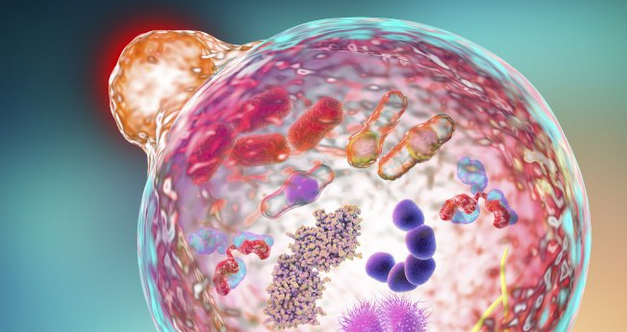The cellular housekeeping function of autophagy may play a role in Alzheimer's as dysfunction could result in the accumulation of amyloid. Herpesviruses HHV-6A, HHV-6B and HSV1 can infect central nervous system cells and dysregulate autophagy.
In a review, the authors propose that herpesviruses may impair one or more of the several autophagic steps, and this can occur either during primary infection (Santarelli 2016, Gilardini Montani 2018) or during lytic reactivation from latency (Cirone 2018). Furthermore, they explain that viruses can hijack the autophagic machinery for their own purposes. HSV-1 blocks autophagy in infected neurons by inhibiting an essential protein Beclin-1 (Orvedahl 2007), and the authors recently showed that HHV-6A and HHV-6B modulate autophagy differently (Romeo 2019).
The authors note that viruses can also increase reactive oxygen species production and promote inflammation in glial and microglial cells, and call for further investigation of this potential link between Alzheimer's, autophagy and virus.
Read the full paper here: Romeo 2019

Source: Neural Regeneration Research, Romeo 2019

